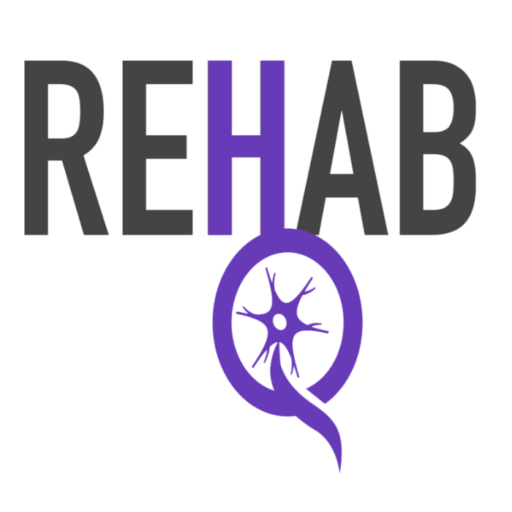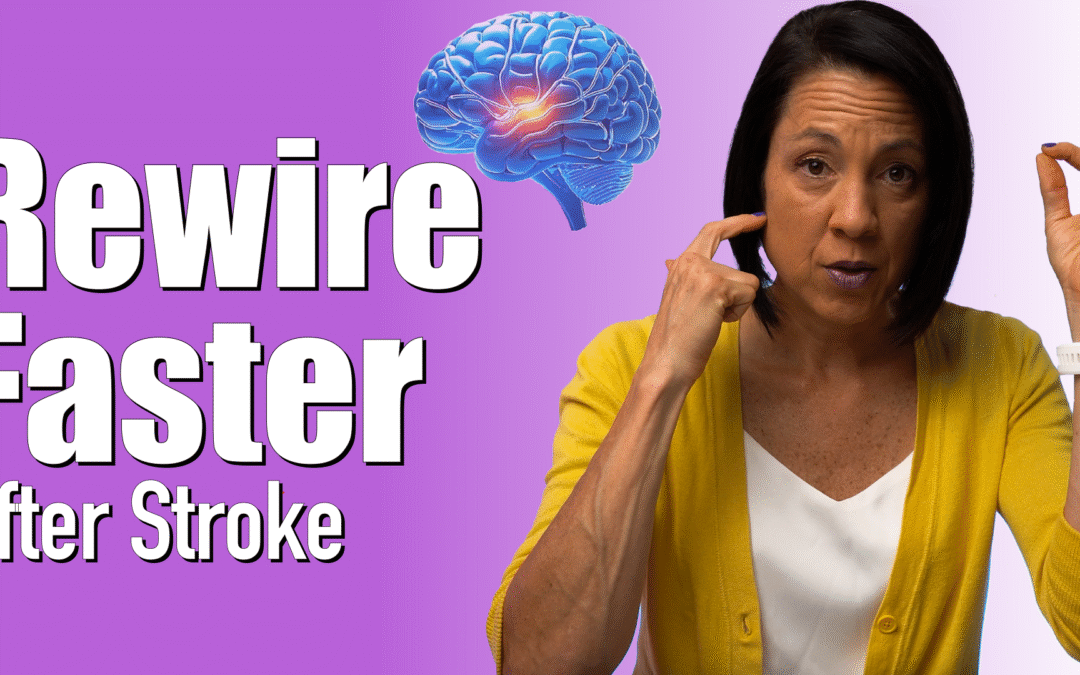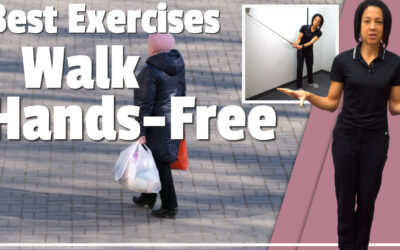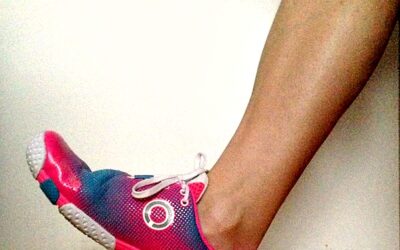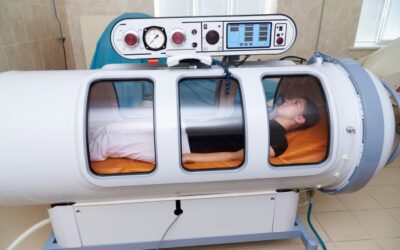Want to Rewire Your Brain Faster After Stroke? Try These 3 Habits
If you’ve been on this neuro-recovery journey, you know it can feel like progress is slow. You do your exercises, you follow instructions, but sometimes your brain seems… stubborn. I get it. I’ve seen it in hundreds of patients over 22 years. And here’s what I’ve learned: your brain responds best when you challenge it in new ways.
I want to share three brain habits that I’ve seen make a real difference. Habits that go beyond the usual exercises and can actually help your brain rewire faster. These aren’t just theory. I’ve used them in therapy sessions and at home programs with real patients, and the results are encouraging.
Habit #1 Novel Movement Challenges: Wake Your Brain Up
Your brain loves novelty. When you throw something new at it, it wakes up, pays attention, and gets primed to rewire.
Some of my favorite “novel movements” to incorporate:
- Walking backwards in a hallway (safely!)
- Walking on an unfamiliar or slightly uneven surface (safely, of course)
- Doing exercises that cross midline, this means reaching across your body:
- March and tap your opposite hand to your knee
- Stand still in a corner and reach for objects across your body
- Tap your foot across midline
Crossing midline is a game-changer. The first time I get a patient reaching across their body, it’s like a switch flips their brain just lights up in a whole new way.
Why does this work? Because repetitive and predictable exercises can make the brain go into “autopilot.” But when something feels unexpected, that’s when brain reorganization, the rewiring we want really happens.
Habit #2 Music and Rhythmic Movement: Let the Beat Guide You
If you’ve ever noticed it’s easier to move to music, you’re not imagining things. The motor areas of your brain (movement) and the auditory areas (hearing) are neighbors, and when they sync up, your movement quality improves.
One simple way to try this is to download a metronome app and clap, march, or step to the beat. Or make it fun by putting on your favorite song and walking or tapping along.
I’ve used this with patients who have Parkinson’s disease, but I’ve also seen it help stroke survivors and people with MS. There’s research to back this up too. Studies show that pairing rhythm with movement can improve motor function after neurologic injuries.
Habit #3 Visualization: Train Your Brain Even When You Can’t Move
If you’ve ever thought, “I can’t move my arm, so what’s the point?”, think again. Visualization, or mental practice, is a powerful tool in neuro-rehab.
Simply imagining movement activates the same motor areas in your brain as physically moving the limb. Functional MRI studies show that when you visualize your arm lifting or your leg stepping, the motor areas of your brain light up even if your body isn’t moving yet.
It doesn’t replace real movement, but it enhances it. Here’s how you can use it:
- Sit quietly and picture your arm or leg moving normally (walking, reaching, or picking up a cup)
- If your therapist or caregiver is moving your arm, don’t just sit there. Watch your arm and imagine yourself doing it
- Caregivers: guide the person’s attention to the moving limb it’s prime time for brain activation
Final Thoughts
Recovery isn’t only about grinding through exercises, it’s about engaging your brain in the right ways. By adding novelty, rhythm, and visualization into your daily routine, you can help your brain rewire faster and more effectively.
Here’s what I want you to remember:
Recovery is possible. Your brain is capable of more than you think. And sometimes, the little things, like walking backwards, moving to music, or picturing your arm reaching can make the biggest difference.
Try adding one habit today: maybe walk backwards safely in your living room, clap along to a song, or visualize moving your affected limb while resting. Small consistent steps make a huge difference over time.
I’d love to hear from you. Do you already use any of these habits in your recovery? Have you noticed changes when you move to music, or when you picture yourself moving? Share your experiences with us. I learn from you as much as you learn from me, and your story might help someone else take their recovery to the next level.
If you want more structured exercises, guided routines, and research-backed strategies, check out our membership plans. You get 24/7 access to curated home exercises, videos, and support to help you take full ownership of your recovery.
Articles you may be interested in
How to Fix Circumduction and Walk Better
Why Your Leg Swings Out: Causes and Exercises to Improve Gait https://youtu.be/mXI9oaJ6uHkCircumduction is a common issue after a stroke, where your leg swings out to the side instead of moving straight forward as you walk. This abnormal gait pattern can be...
Discover 15 Principles to Rewiring Your Brain Faster
Discover 15 Principles to Rewiring your Brain Faster Transform Your Mindset and Achieve Rapid Results https://youtu.be/rfSCk_qJe64 Neuroplasticity: Your Brain’s Superpower After a stroke, the brain can suffer damage, but it’s far from the end. But here’s the good...
Eye Exercises for Stroke Survivors: Regaining Vision and Function
Visual impairment is a very common consequence in stroke survivors—almost 50% of stroke survivors become visually impaired. This is primarily because the brain's visual pathways are blocked or damaged when a person experiences a stroke. As a result, patients often...
Improve Balance Reactions
https://vimeo.com/849792292?share=copy
We are products, not prisoners……..
“We are products of our past, but we don’t have to be prisoners of it." - Rick Warren, The Purpose Driven Life Our past is a great teacher for a better future. For example, I wouldn't know how to balance a checkbook, had I not bounced a few checks in...
Complete guide to foot drop
Guide to Foot Drop The peroneal nerve includes a branch of the sciatica nerve that enables movement and supplies sensation to one’s feet, toes, and lower legs. Peroneal neuropathy or common peroneal dysfunction results from nerve damage outside the brain or spinal...
Hyperbaric Oxygen Therapy and Neuroplasticity
Stroke and Brain Injury Background Traumatic brain injuries can result from sudden, violent blows to the head or when an object, such as a bullet, a sharp object, or a piece of skull, penetrates the brain tissue. Mild traumatic brain injuries have temporary effects on...
Does life get better with age?
"All life demands struggle. Those who have everything given to them become lazy, selfish, and insensitive to the real values of life. The very striving and hard work that we so constantly try to avoid is the major building block in the person we are today." - Pope...
Challenge Your Beliefs
If I told you that you have the ability to accomplish whatever you want in life. Would you believe me? “Whether you think you can or can’t, you are right”. – Henry Ford When I was in high school I started “jogging” with the ultimate goal of being able to do my dad’s...
When Goals Go “Rogue”
Setting "big goals" seems to be an admirable quality these days. Whether it is in life or in neuro rehab, stating you have "big goals" seems to tell the world you are "ambitious". I know you have a goal in mind. That skill, movement, activity that you want to be able...
